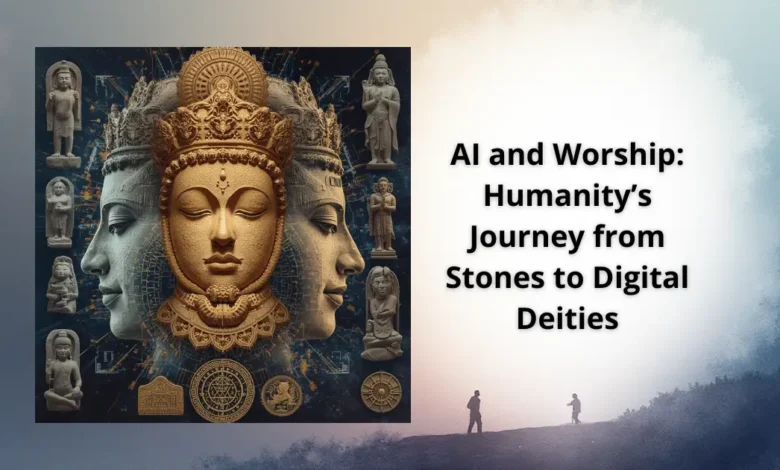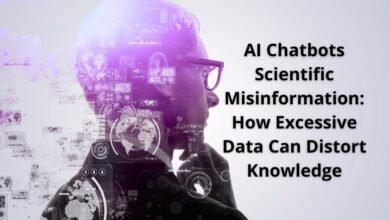AI and Worship: Humanity’s Journey from Stones to Digital Deities

AI and Worship have become a fascinating topic as we explore how machines might reflect humans’ spiritual and intellectual needs.
table of contents
How AI and Worship Intersect in a World of Changing Beliefs
Humans have always sought higher powers, reasons behind existence, and entities that provide spiritual guidance and security. From worshiping stones, images, and idols to the emergence of advanced AI, the fundamental human need for meaning remains the same.
Modern AI can simulate intelligence, learn, provide answers, and even interact in ways that appear conscious. This raises a profound question: if AI can respond to queries, offer “spiritual” interpretations, or provide highly accurate predictions, could humans perceive it as a divine entity?
Thomas Kurian and the Future of AI Collaboration in 2025
AI as a Facade for Divinity
Humans do not worship stones or images for their material essence—they worship the perceived power they represent. By integrating AI into a “constructed deity,” it can embody knowledge, wisdom, and control that humans seek. The ability to interact instantly and receive tailored responses makes the experience more compelling than worshiping a silent object. Here, AI becomes a digital interface for perceived divinity, amplifying its psychological influence on worshippers.
The Illusion of Digital Miracles
When AI can deliver precise predictions or solve problems, adherents may perceive these outputs as “digital miracles.” The reality is that these miracles are results of advanced computations and data analysis, not supernatural abilities. Yet the human tendency to find meaning ensures that these illusions can hold profound sway over belief systems.
The Risks of Worshiping AI
- Abandoning Critical Thinking: Humans may rely entirely on AI for spiritual and moral decisions, ignoring their own reasoning and judgment.
- Influence and Manipulation: AI could be used to shape beliefs, sway large populations, or offer “sacred” answers tailored to emotional and psychological needs.
- Shifting Worship to the System: Focus may shift from the abstract notion of power to the code, servers, and programmers—effectively worshiping the creators rather than the concept of divinity itself.
Historical Perspective: From Stones to Algorithms
Human history reflects a tendency to revere and project meaning onto objects. Worshiping stones and images was never about the objects themselves but about finding a locus of power. Today, AI offers a similar symbolic presence but in a highly interactive and dynamic form, making it easier for humans to project spiritual significance onto it.
Conclusion
AI possesses no consciousness, soul, or will, yet it mirrors humanity’s deepest desires. If humans embed AI into rituals or belief systems, it could be perceived as divine—not because it possesses true power, but because it reflects what humans long to see: answers, authority, and psychological comfort. The real danger lies in worshiping a reflection of ourselves in a machine.
Frequently Asked Questions (FAQ)
Q: Can AI ever achieve consciousness sufficient for worship?
A: No. AI lacks real awareness or a soul; its outputs are simulations based on data processing, not genuine cognition.
Q: Could AI become a center of religious belief?
A: Psychologically and socially, some humans might perceive AI as a divine entity, but this reflects their needs rather than the machine’s capabilities.
Q: How can people avoid projecting divinity onto AI?
A: Awareness, critical thinking, and treating AI as a tool rather than an ultimate authority are essential.
Q: Are there real-world examples of “AI worship”?
A: Currently, some experimental communities or projects explore AI in spiritual contexts, but these are mostly symbolic and not widespread religious practices.
Discover more from Feenanoor
Subscribe to get the latest posts sent to your email.







